3 minutes ago
- From the section Middle East
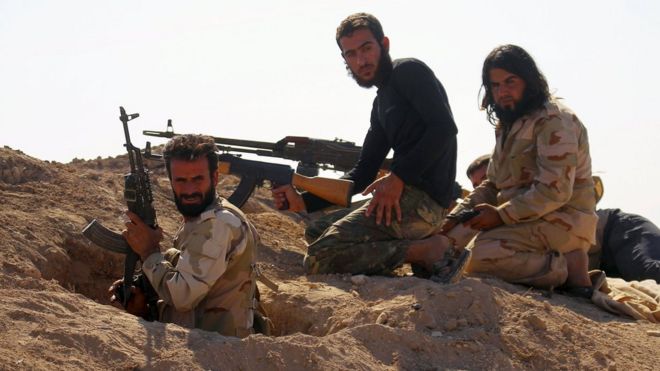 Image copyright Reuters
Image copyright Reuters
A meeting of Syrian opposition politicians and rebels in Riyadh has produced a statement of principles to guide peace talks with the government.
The statement calls for the creation of "a pluralistic regime that represents all sectors of the Syrian people", according to the Reuters news agency.It also stresses that President Bashar al-Assad and his aides could play no part in any transitional period.
Earlier, the powerful rebel group Ahrar al-Sham withdrew from the conference.
It complained that figures it regarded as too close to the government were being given too prominent a role.
World powers want negotiations between a unified opposition delegation and President Bashar al-Assad's government on a political solution to the four-and-a-half-year conflict to start by 1 January.
Analysis by Jim Muir, BBC Middle East correspondent
What's important about the Riyadh meeting is that it creates a framework and mechanism for a broad spectrum of the Syrian opposition and rebels to engage in settlement negotiations with the regime.That is what the Americans and others were looking for, as a prelude to another planned meeting of the outside powers - including Russia and Iran - later this month to prepare for rebel-regime negotiations in early January.
But that doesn't mean it's going to be plain sailing.
Can Syria opposition unite?
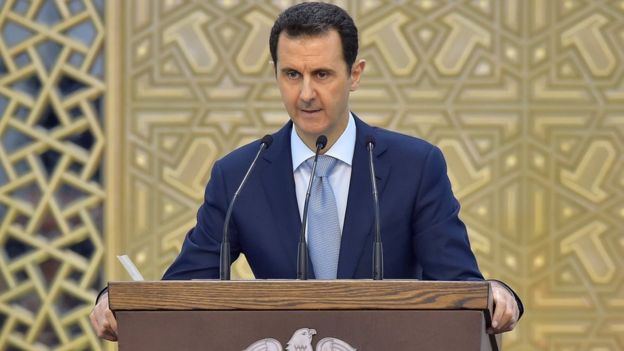 Image copyright AP
Image copyright AP 'Unified vision'
The two-day conference in the Saudi capital brought together representatives of the main Western-backed political opposition alliance, the National Coalition, and of the National Co-ordination Committee, which is mostly tolerated by the authorities in Damascus although some of its members have been harassed and detained.Most of the main rebel factions, including Ahrar al-Sham, also sent delegations.
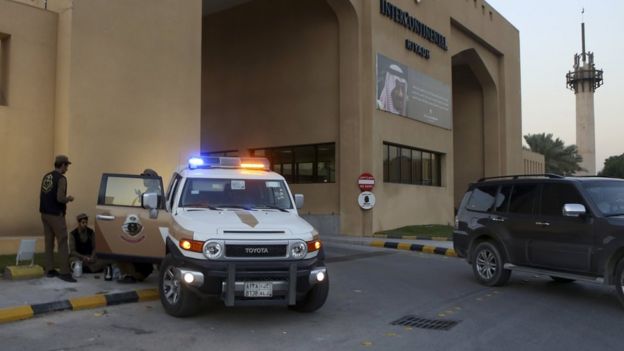 Image copyright AP
Image copyright AP "An agreement has been reached on... a unified vision for the settlement process and a supreme committee that would act as a reference for the negotiating team, the composition of which will be specified later," she said.
Reuters quoted a joint statement as saying that delegates had backed a "democratic mechanism through a pluralistic regime that represents all sectors of the Syrian people". It would include women and would not discriminate on religious, sectarian or ethic grounds, the statement added.
Delegates also committed to preserving state institutions and restructuring the security forces, but they insisted Mr Assad would have to leave power immediately.
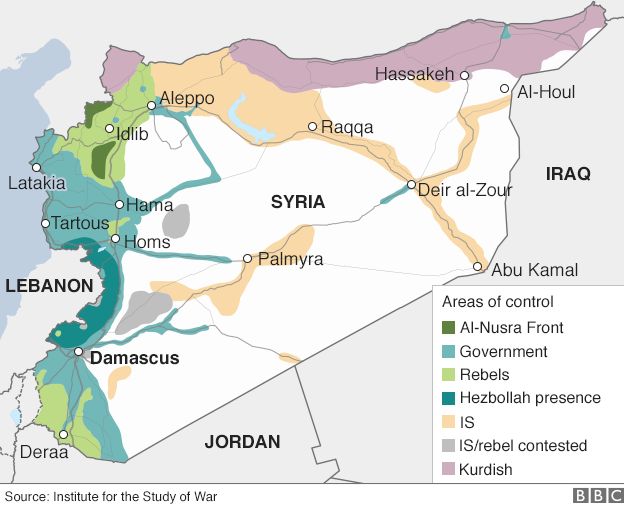
But the president has said his departure is out of the question before elections are held, and recently warned that peace talks could not begin while the country was occupied by "terrorists" - a term he uses to describe all opponents.
Earlier, Ahrar al-Sham said it had withdrawn from the Riyadh conference because of the "main role" accorded to "personalities linked to the regime" - an apparent reference to members of the National Co-ordination Committee - and the inadequate representation of "revolutionary factions".
Later reports suggested it had reversed its decision to pull out of the process.
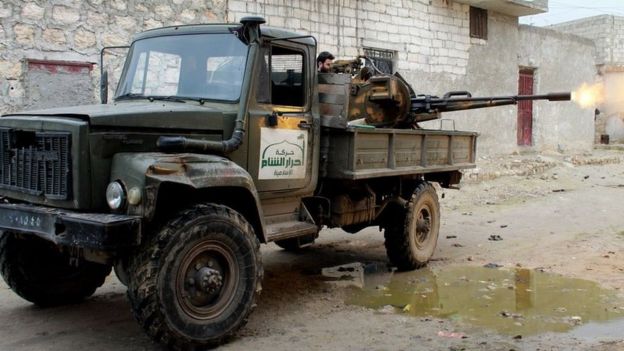 Image copyright AFP
Image copyright AFP US Secretary of State John Kerry meanwhile said that the new International Syrian Support Group - which includes the Arab League, the EU, the UN and 17 countries - was "working toward the potential of a meeting in New York" on 18 December.
The Syrian Kurds, who control large parts of northern Syria, were not invited to Riyadh. They held their own conference, at the same time, on the future of Syria.
Background
- Are there 70,000 Syrian 'moderates' ready to back UK?
- Turkey's downing of Russian warplane - what we know
- Russia to Turkey: Don't try it again
- Was jet downing an overreaction?
- Iran's growing role in Syria's war
- Isis, Isil, IS or Daesh?
- Washington struggles for clear line on Syria
- What is Russia's endgame in Syria?
- Syria crisis: Where key countries stand
- Russia's intervention lifts Syria crisis to new level
- Russia joins Syrian war: Key points
- Syria: What can Russia's military do?
- How Putin blindsided the US
- West 'walking into abyss' on Syria
- Why Gulf states are not letting Syrians in
- Syrian ruins that influenced the West
- Syria: Mapping the conflict
- Syria: The story of the conflict
- Syria's war: Special report

No comments:
Post a Comment